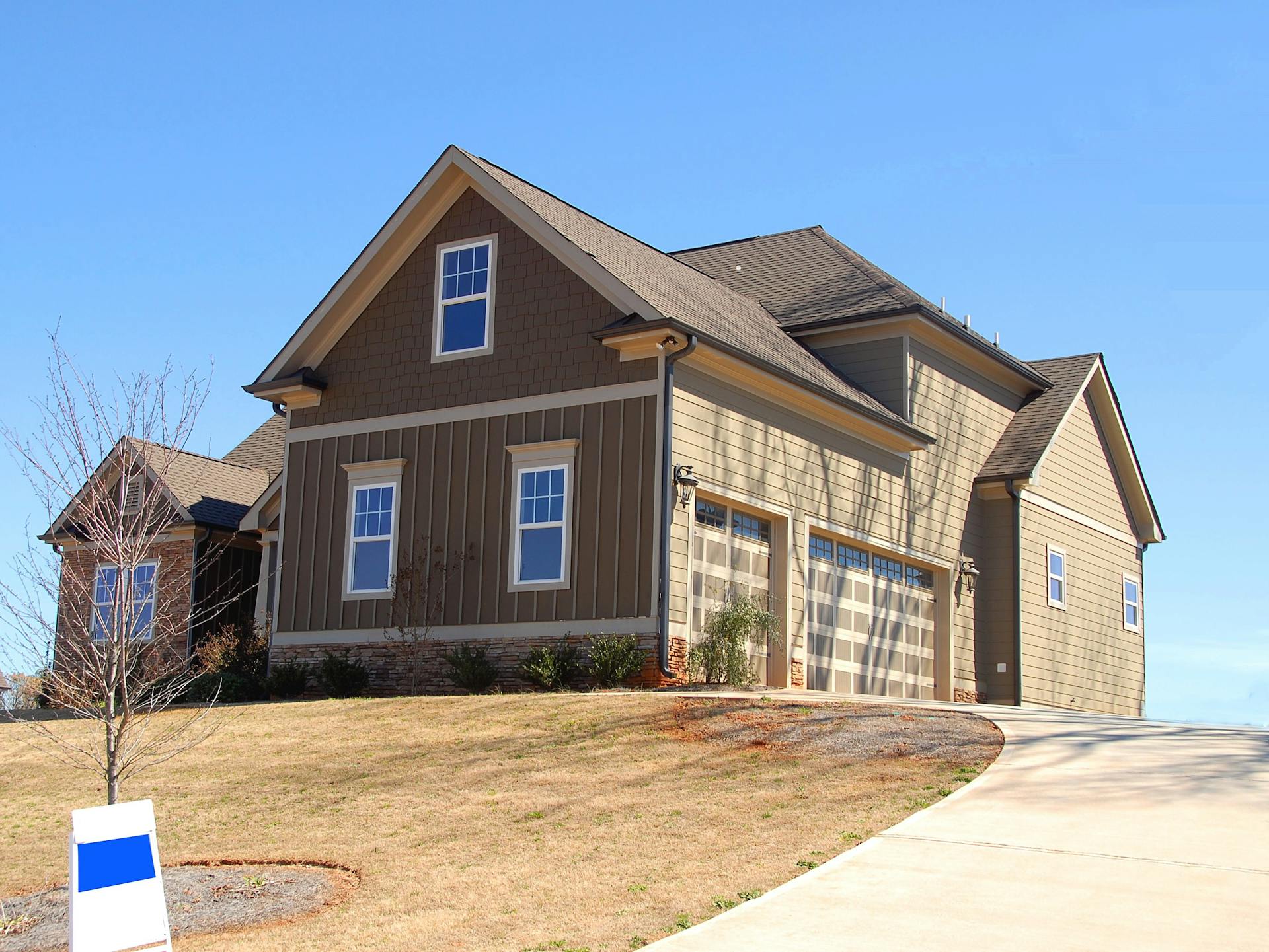
If you've ever considered buying a foreclosed home, then you're likely aware of the benefits and drawbacks that come with it. A foreclosed home is a property that has been repossessed by the bank or lender after the previous owner failed to make their mortgage payments. The process of purchasing a foreclosed home can be complex, but it can also offer buyers great savings on their dream home.
In this article, we'll discuss the pros and cons of buying a foreclosed home as well as provide you with a step-by-step guide to navigating the process. We want to ensure that you have all of the information necessary to make an informed decision before taking on this investment. As always, our articles contain affiliate links and are subject to our disclosure policy. So, whether you're looking for your first home or simply want to explore your options, keep reading for everything you need to know about buying a foreclosed home!
Why You Should Understand the Concept of Foreclosure
Foreclosure takes place when a homeowner fails to make their mortgage payments, and the lender reclaims possession of the property. Once a house is owned by the lender, it becomes a foreclosed home that is usually listed for sale at a lower price than its market value.
Understanding foreclosure is crucial because it can have significant implications for both homeowners and buyers. If you stop making your mortgage payments, foreclosures will negatively impact your credit score and may even result in eviction from your home.
On the other hand, if you're considering purchasing a foreclosed home, it's important to understand the pros and cons associated with it. While buying a foreclosed home can be an excellent opportunity to get into the housing market at a lower price point, these homes often require extensive repairs and renovations. By understanding foreclosure, you'll be able to make informed decisions when navigating this complex process.
1. See What You Qualify For
If you're in the market for a foreclosed home, it's important to see what you qualify for before diving into the home loan process online. Your credit profile and time as a first-time homebuyer can greatly affect your eligibility for certain loans. But congratulations based on your qualifications can automatically pop up on the sign-in page of sites like Rocket Mortgage. It's important to note that these sites may resolve claims related to the Telephone Consumer Protection Act and have specific privacy policies regarding contact information and home descriptions.
Expand your knowledge: First Time Home Buyer Tips
The Bottom Line: Buying A Foreclosed Home Has Its Pros And Cons

If you're one of the many home buyers looking for a unique opportunity to pay lower prices and complete home restoration projects, foreclosed homes might be just what you need. However, be aware that some foreclosed homes come with severe damage or structural issues that can be very costly to repair. That's why it's important to work with an experienced real estate agent who can guide you through the foreclosure process and help you avoid any potential pitfalls.
Once you find a foreclosed home that interests you, make sure to have a property inspection completed. You'll also need to get your initial mortgage approval and secure funding to follow through with the purchase. This is where Rocket Mortgage comes in – our verified approval program provides an underwriter's comprehensive analysis of your credit, income, employment status, debt, property insurance, appraisal and other information materially related to your credit request. By getting verified approved before starting the mortgage approval process, you'll have greater confidence when submitting purchase loans.
Keep in mind that if your loan fails during the underwriting decision resulting from something outside of Rocket Mortgage's control (such as a change in your credit status or additional conditions requested by the mortgage broker), we offer payment assistance up to $2,500 towards closing costs on another eligible Rocket Mortgage loan. So if you're ready to take advantage of the pros and cons of buying a foreclosed home, give us a call at 833-326-6018 today!
Intriguing read: Home Equity Line of Credit
Discover the Disadvantages of Purchasing a Foreclosed Home
Foreclosed homes are often sold in as-is sales, meaning that the lender is not responsible for any repairs or improvements needed to make the property livable. This can lead to increased maintenance concerns, as the home may be in poor condition due to neglect or lack of funds from the previous homeowner. Additionally, if the homeowner did not spend money on necessary repairs before foreclosure, it is unlikely they will do so now.
When you purchase a foreclosed home, you are responsible for its condition from the time of purchase. This means that any issues that arise after closing are your responsibility to fix. As lenders' main concern is recovering their losses on the property, they often sell foreclosed homes at a significant amount less than their market value, which could lead potential buyers into thinking they're getting a great deal without realizing all that "savings" might go right back into fixing everything wrong with the house.
One major disadvantage of purchasing a foreclosed home is squatters' rights. Legally foreclosed homes sit unoccupied and can attract squatters looking for free housing. Should you inherit squatter living in your newly purchased foreclosed home, legally evicting them could cost thousands in attorney fees and court costs. While there are certainly pros to purchasing a foreclosed property- like potentially getting a good deal- it is important to weigh all your options before making such an investment decision.
Understanding Foreclosure: Simplified Guide
Understanding foreclosure is essential for anyone who wants to invest in a foreclosed home. Foreclosure is an often-lengthy legal process where a lender repossesses a home from a homeowner who has failed to make mortgage payments. If the homeowner fails to pay, the bank takes ownership and may auction foreclosure commonly or sell it through other means.
The foreclosure process is governed by state law, and mortgage documents dictate the distinct stages pre-foreclosure auction and post-foreclosure homes. The pre-foreclosure period is when a struggling homeowner can still save their home by paying off their mortgage or negotiating with their lender. However, details confer and create potential complications that prospective buyers should understand before committing to a sale. Overall, understanding foreclosure is key to making informed decisions about investing in foreclosed properties.
Discover The Best Ways To Locate Foreclosed Properties

Finding foreclosed properties varies depending on the state laws covering the foreclosure process. In most states, initial foreclosure filings are public record and can be found at the county courthouse check or county records. You can also check local newspaper auction notices or local news sources to keep up with upcoming auctions. Some properties marked pre-foreclosure may be available for sale before they go to auction, estimate based on area sales data.
Real estate agents and online real estate marketplaces pre-foreclosures can also be a great resource. Real estate websites like Zillow offer pre-foreclosure properties that have been filed in public notice, as well as REOs (homes owned by banks) that have already gone through the foreclosure process. Loan servicing companies REOs and major loan service company websites like Bank of America and Wells Fargo offer searchable lists of their REO inventory.
Finally, don't forget about government-owned foreclosures! The federal government has several agencies that manage defaulted FHA loans, Fannie Mae, Freddie Mac properties, and HUD-endorsed mortgages. These agencies often give preferential treatment to owner-occupants who want to purchase these homes. Auction sites like RealtyTrac offer free searches for detailed info on these types of properties as well as a subscription service for even more leads.
Make smart real estate investments in partnership with Belong

Make smart real estate investments in partnership with Belong, a modern alternative to traditional property management companies. When you've purchased an investment property, it's important to have a solid plan in place to ensure maximum cash flow. Belong can help you find residents, attract and screen them, and retain them for the long term.
Foreclosed home pros and cons are one aspect of any real estate investment strategy that should be considered. As we noted in related articles from Apr 26 2023 and Apr 6 2023, foreclosure rates and eviction levels have been on the rise in many of the 11 major cities across the US. However, if you're able to secure a foreclosed property at a discount and use a home equity line to finance the purchase, it's possible to benefit rental owners by restoring lost income.
One of the ways Belong helps investors get ahead is through our focus on technology and data-driven processes. By leveraging our platform, you can make more informed decisions about which properties to purchase and how best to manage them over time. Whether you're just starting out or looking for ways to optimize your existing portfolio, partnering with Belong can help you achieve your goals as a real estate investor.
Why Owning a Foreclosed Home Can be Advantageous

Owning a foreclosed home can be advantageous for many reasons. The undeniable benefit of purchasing a foreclosed home is the lower prices compared to traditional homes on the market. Foreclosed homes usually sell for less than their market value, making them an attractive option for those looking to save money.
Another advantage of buying a foreclosed home is that they're priced based on their condition. If you're willing to put in some work, you might find a great deal on a home that needs some TLC. And if you're lucky enough to find a foreclosed home in livable condition, it could be an excellent investment opportunity.
While foreclosed homes are typically sold through cash-only auctions or require unconventional loan options, such as government-backed loans like VA, FHA, and USDA loans, the buying process can make homeownership more accessible for those who may not qualify for standard loan configurations. So while foreclosed homes may require work and don't offer USDA loans, they can still be an excellent option for potential homeowners looking to save money or get into the housing market with unconventional financing options.
Pros and Cons: Exploring the Ups and Downs
Pros and Cons: Exploring the Ups and Downs of purchasing a foreclosed home can be overwhelming. On the one hand, buying a home in foreclosure stage holds distinct advantages such as lower purchase price and potential for high return on investment. On the other hand, there are several downsides including the need for extensive repairs, competition from experienced investors, and uncertainty about the property's past due to lack of disclosure. It is important to weigh these pros and cons before making any decisions regarding foreclosed homes.
Essential Information When Purchasing a Foreclosed Home

When purchasing a foreclosed home, it's important to understand the unique characteristics of different types of foreclosures, such as pre-foreclosure, short sale, sheriff's sale, and bank-owned properties. The purchase process varies depending on the type of foreclosure you're dealing with, so it's essential to work with a real estate agent who has experience in this area. They'll be able to provide specific insight based on their knowledge of the foreclosure process they've seen in your area.
Discover more: Capital Gains Home Sale
1. How do home foreclosures work?
Home foreclosures occur when homeowners can no longer make payments on their mortgage. After 90 days of missed payments, the bank takes possession of the property and puts it up for sale. However, before it gets to that point, homeowners have the option to work out a payment plan with their lender. If you're buying a foreclosed home, it's important to weigh the pros and cons carefully.
Frequently Asked Questions
How long does it take to buy a foreclosed property?
The length of time it takes to buy a foreclosed property varies, but can take anywhere from a few weeks to several months depending on the circumstances surrounding the sale, such as the type of foreclosure and the state laws governing the process.
What are the benefits of financing a house sale?
Financing a house sale can offer several benefits such as lower down payment requirements, the ability to purchase a more expensive home, and potentially lower interest rates.
How does a foreclosure affect a home's value?
Foreclosure can significantly decrease a home's value, as it indicates financial distress and can lead to neglect of the property. The longer a foreclosure stays on the market, the more it can negatively impact surrounding home values.
What are the pros and cons of buying a foreclosed home?
Pros: Foreclosed homes can be cheaper than market value, may offer potential for renovation and appreciation in value, and can provide a quicker purchasing process. Cons: Foreclosed homes may require extensive repairs or renovations, can come with liens or hidden fees, and the buying process can be complicated and risky.
What do you need to know about buying a foreclosed home?
When buying a foreclosed home, it's important to understand the risks and potential costs involved. Be prepared to do your research, work with a real estate agent who specializes in foreclosures, and have a thorough inspection of the property before making an offer.
Featured Images: pexels.com


